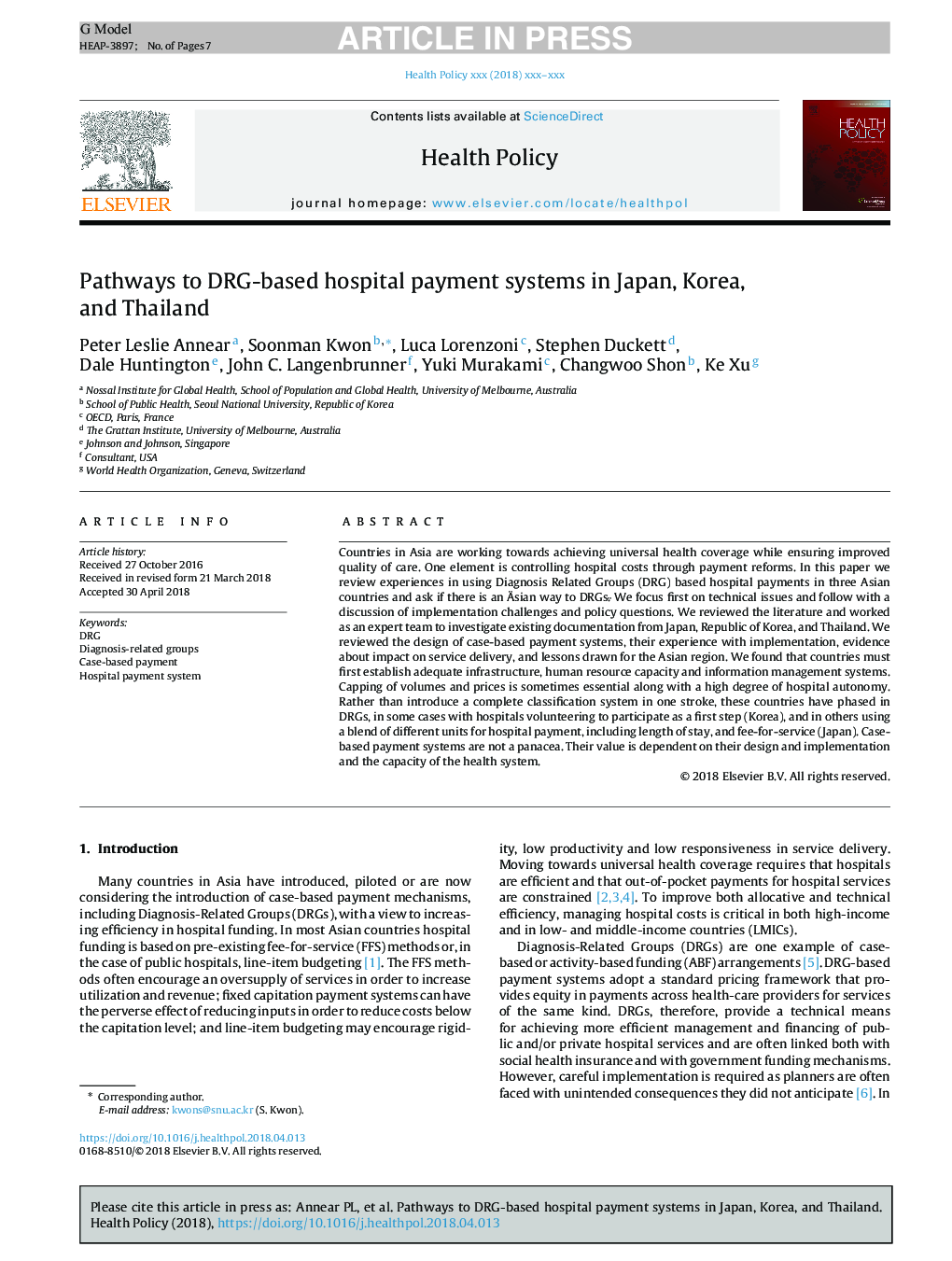| Article ID | Journal | Published Year | Pages | File Type |
|---|---|---|---|---|
| 8817888 | Health Policy | 2018 | 7 Pages |
Abstract
Countries in Asia are working towards achieving universal health coverage while ensuring improved quality of care. One element is controlling hospital costs through payment reforms. In this paper we review experiences in using Diagnosis Related Groups (DRG) based hospital payments in three Asian countries and ask if there is an "Asian way to DRGs". We focus first on technical issues and follow with a discussion of implementation challenges and policy questions. We reviewed the literature and worked as an expert team to investigate existing documentation from Japan, Republic of Korea, and Thailand. We reviewed the design of case-based payment systems, their experience with implementation, evidence about impact on service delivery, and lessons drawn for the Asian region. We found that countries must first establish adequate infrastructure, human resource capacity and information management systems. Capping of volumes and prices is sometimes essential along with a high degree of hospital autonomy. Rather than introduce a complete classification system in one stroke, these countries have phased in DRGs, in some cases with hospitals volunteering to participate as a first step (Korea), and in others using a blend of different units for hospital payment, including length of stay, and fee-for-service (Japan). Case-based payment systems are not a panacea. Their value is dependent on their design and implementation and the capacity of the health system.
Keywords
Related Topics
Health Sciences
Medicine and Dentistry
Public Health and Health Policy
Authors
Peter Leslie Annear, Soonman Kwon, Luca Lorenzoni, Stephen Duckett, Dale Huntington, John C. Langenbrunner, Yuki Murakami, Changwoo Shon, Ke Xu,
